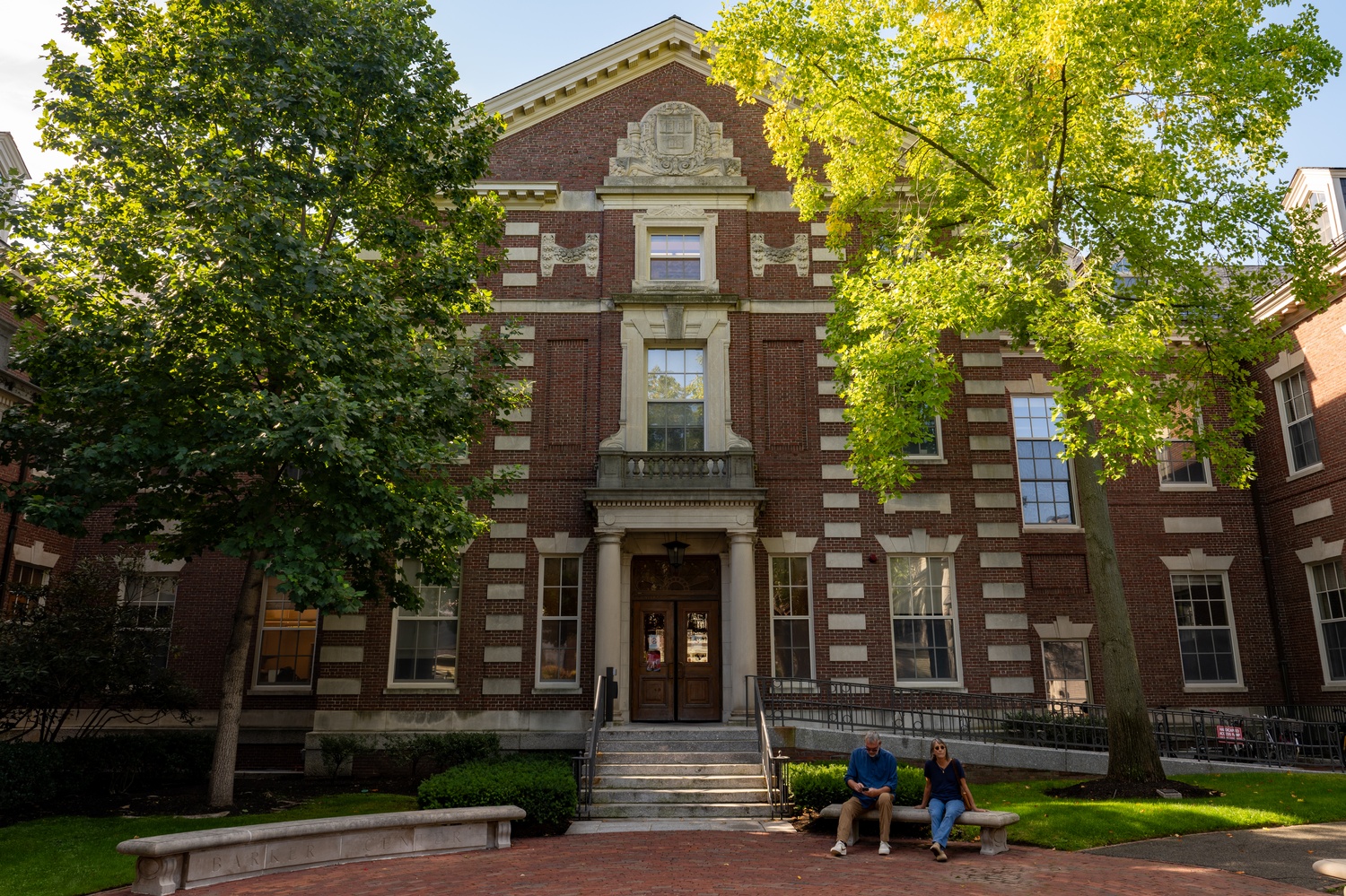
News
Summers Will Not Finish Semester of Teaching as Harvard Investigates Epstein Ties

News
Harvard College Students Report Favoring Divestment from Israel in HUA Survey

News
‘He Should Resign’: Harvard Undergrads Take Hard Line Against Summers Over Epstein Scandal

News
Harvard To Launch New Investigation Into Epstein’s Ties to Summers, Other University Affiliates

News
Harvard Students To Vote on Divestment From Israel in Inaugural HUA Election Survey
The Truth Behind Harvard’s Ideological Imbalance
One percent.
Out of all the faculty The Crimson recently surveyed, only one percent described their political beliefs as very conservative. Think about that: someone is three times more likely to get into Harvard than to encounter a conservative faculty member here.
The figure is so arrestingly low that it has caught the attention of conservative news outlets, with many lamenting the lack of right-leaning perspectives in the nation’s most prominent University.
Much can be — and has been — said in favor of viewpoint diversity in higher education. Yet those decrying the relative lack of conservative faculty overlooks a basic point: The structure of universities themselves lends itself to a professoriate whose politics do not perfectly map on to that of the public writ large. That’s not necessarily a bad thing.
Instead of thinking critically about why there might be such an imbalance, critics myopically focus on the raw number of conservative versus liberal faculty. From this, they surmise that rampant ideological conformity grips our corner of Cambridge. While it is entirely fair to point to the lack of conservative faculty at Harvard, it does not necessarily follow that the University consistently takes a conscious stance in favor of liberal ideology or that liberal excess pools in classrooms.
I have never had a professor attempt to foist their political views onto their students. In fact, the opposite has been the case: Faculty tend to be very skilled at fostering deep, nuanced discussions about contentious issues in class without betraying their political beliefs.
Harvard is a sprawling bureaucratic institution, with some 70 departments and centers in the Faculty of Arts and Sciences alone. These divisions get pretty specialized and include the Center for Nanoscale Systems, the Center for Hellenic Studies, and fields of study for Ethnicity, Migration, and Rights, Medieval Studies, and Folklore and Mythology, just to name a few. It’s safe to say that students have access to many niche — and, in my view, oddly specific — learning experiences that can satisfy practically any intellectual interest.
That’s undoubtedly a good thing; students should be able to explore whatever topic that they want to study. It is by virtue of this specialization, however, that the faculty has such a political slant.
Setting aside STEM fields — in which advancements in understanding are more removed from hot-button political issues — two of the main divisions of the FAS, Social Sciences and Arts & Humanities, attract scholars with more progressive views simply because of the nature of their subjects.
For example, areas like English literature, sociology, anthropology, and linguistics frequently analyze topics such as immigration, colonialism, and inequality through a very specific, esoteric lens that can lead to beliefs at odds with those outside progressive politics.
Sociology, for example, emphasizes the impact of someone’s environment on the trajectory of their life and often structuralizes issues that many see as personal faults, such as crime or violence, as issues of society.
The lack of emphasis on human agency or ethics is not a very conservative framework.
Other specialized humanities fields are quite segmented; courses on histories and literatures are frequently divided by culture and tradition, with scholars further dividing fields by gender, sexuality, or class. This sectioning is reminiscent of identity-based politics found in progressive circles, particularly in the identity politics Americans appear to mostly oppose.
Faculty members in these fields, who were so interested in their fields’ analytical frameworks to devote their lives to its study, will likely have progressive tendencies because that is the ideology that most closely aligns with their interests and worldview.
Yet if Harvard were to dispense itself of these types of professors, students would lose a tremendous amount of intellectual opportunities, ultimately limiting viewpoint diversity.
Harvard’s overwhelmingly liberal faculty reflects, at least in part, the diverse and extremely hyperfocused specializations the University offers. If Harvard aims to increase its faculty’s viewpoint diversity and hire more conservatives, it must not do so simply for its own sake — that, ironically, could be vulnerable to the same criticisms that conservatives used to pillory so-called unmeritocratic systems like affirmative action. Instead, any potential new faculty members must add to Harvard’s intellectual offerings, regardless of their political beliefs.
Henry F. Haidar ’28, a Crimson Editorial editor, lives in Lowell House.
Want to keep up with breaking news? Subscribe to our email newsletter.

